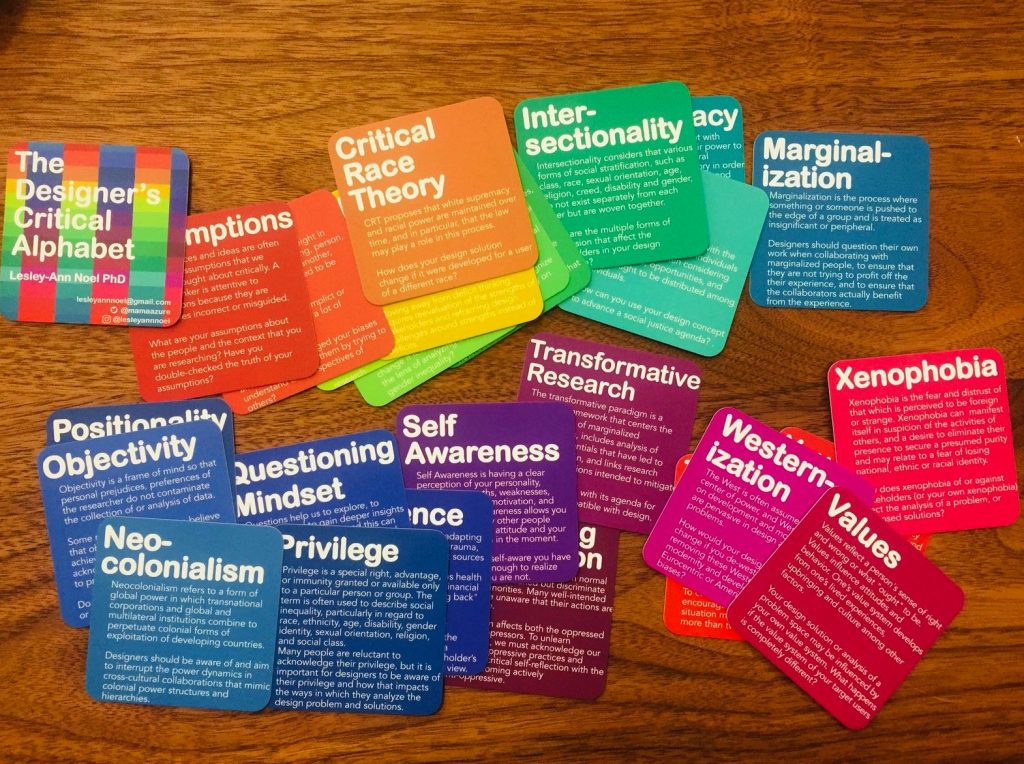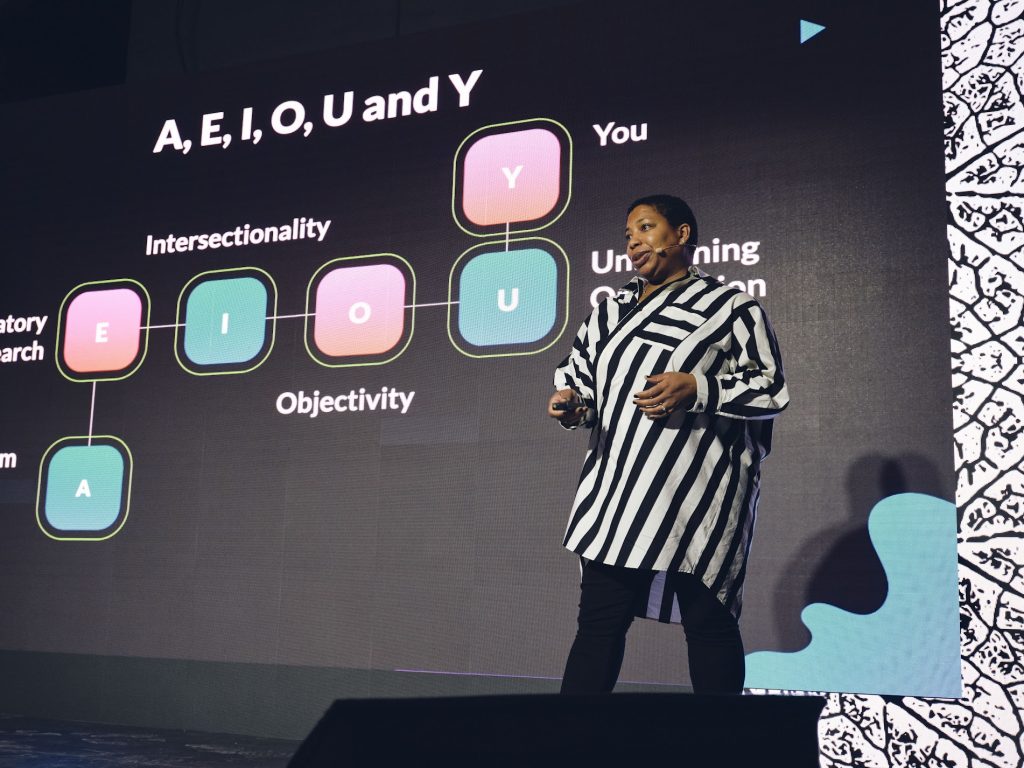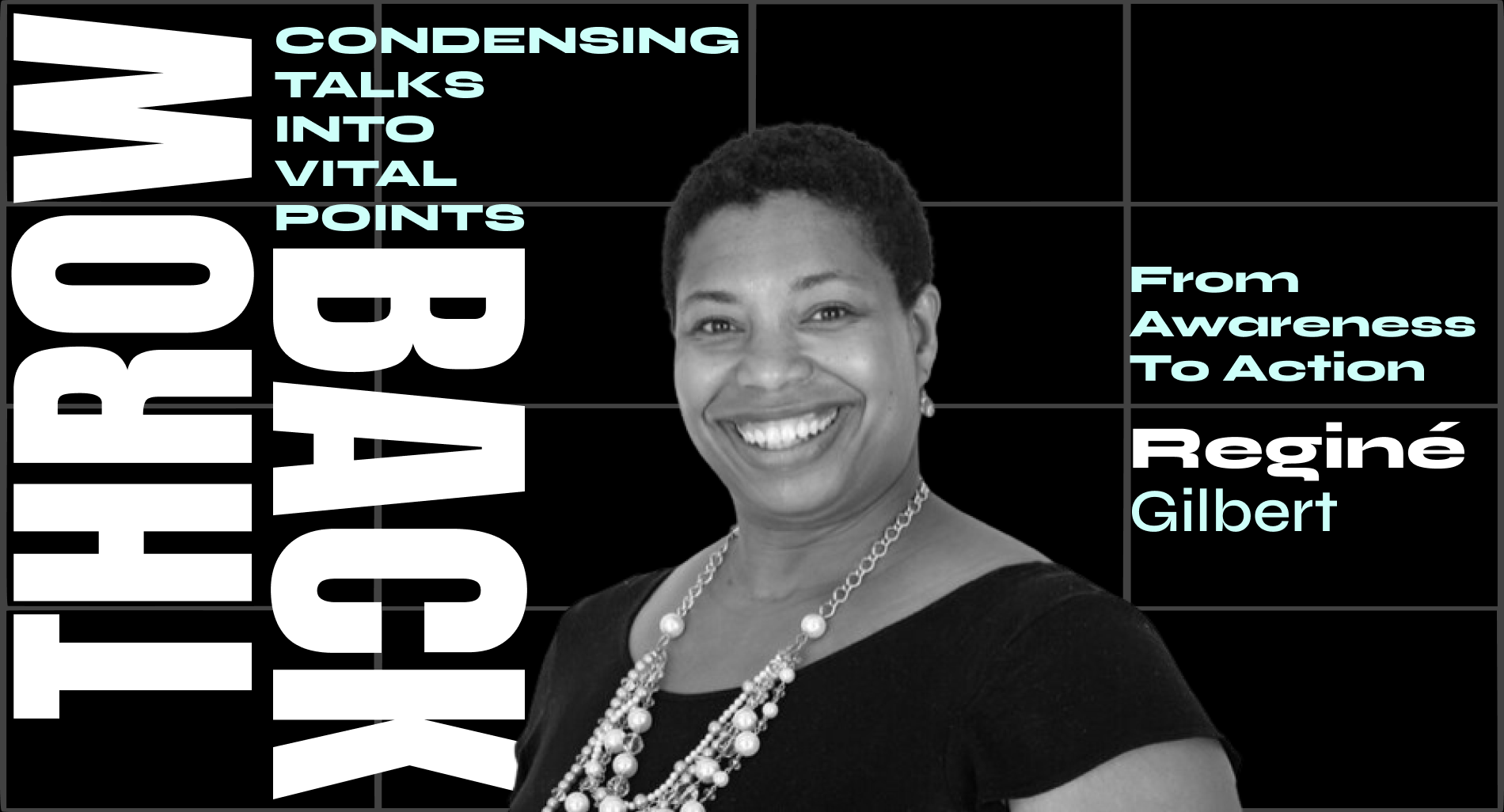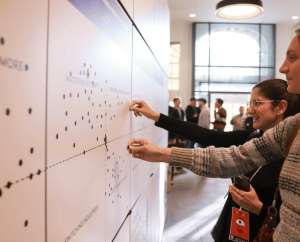Reginé Gilbert is an Industry Assistant Professor at NYU Tandon School of Engineering, designer, educator, author and ever evolving advocate for inclusion. In her talk at Design Matters 22, she introduces the Designer’s Critical Alphabet by Lesley-Ann Noel PhD, and gives examples of her own process of progress.
“Good design starts with honesty, tough questions, collaborations, and trusting your intuition.”
Freeman Thomas
Reginé Gilbert goes through the vowels of the Designer’s Critical Alphabet to inspire designers to think, grow, and make informed change.

A- Is for Ableism
Ableism is the exclusion of people with disabilities actual or perceived. Ableism is in reality a violence. To include, all of our language needs to be mindful. it is our duty, to never make anyone feel inferior. As we learn, and unlearn -we will do better. Ableism is so ingrained in capitalist society that it will take a lot of active unlearning to get past. Many find this confrontation with this part of themselves hard to overcome.
E- Is for Emancipatory Research
Design without research is like cornflakes without mil. Emancipatory or transformative research is about including the perspective of traditionally excluded people and their views. For example, involving blind participants in VR research. Three easy steps to broaden your spectrum.
1. Become an ally
2. Reach out to local communities
3. Be open to critical feedback
I- Is for Intersectionality
In 1989, Legal Scholar Kimberlé Crenshaw coined this term, to describe how multiple forms of discrimination are often erased when, for example, sexism and racism are treated separately. Intersecionality clarifies that class, race, creed, ability, sexual orientation, age, religion, disability, gender –are not components, but are woven together to form a whole.
As designers and researchers, we need to go beyond empathy. Empathy can be limiting, giving a role of savior instead of compatriot. We need to question; what are the multiple forms of oppression that affect the stakeholders of the design.
O- Is for Objectivity
That personal prejudices and preferences of the researcher do not contaminate the collection and analysis of data. Some researchers claim that objectivity is impossible. Their solution being, that biases must be declared in order to produce the most qualified research. We should declare, that unlearning biases will produce more integral research and designs.
U- Is for Unlearning Oppression
Oppression affects both the oppressed and the oppressor.
To unlearn oppression you must:
1. Acknowledge every day oppressive practices
2. Engage in critical self-reflection
3. Aim to become ACTIVELY anti-oppressive
“The illiterate of the 21st century will not be those who cannot read and write. But those who cannot learn, unlearn, and relearn.”
Alvin Toffler
Y- is for You
You play an active role in cultural and societal evolution. You have the agency to question what is happening, and take action. Design can be your form of an active response to change. To actively include.
For more wise words and deeper explanations, please view Reginé Gilbert’s full Talk on Moving from Awareness to Action and/or download her presentation.

Reginé’s insights since giving her talk
Since delivering my presentation a year ago, I’ve noticed a common desire among people worldwide to make a positive impact. However, some may need help figuring out how to achieve this. It has been a privilege to teach accessibility principles to students who are just starting in this field and to engage with audiences who have extensive knowledge about it. What I’ve come to realize is that learning is a continuous process. Whether you’re an entry-level designer or a seasoned professional, it remains our collective responsibility to continually educate ourselves on creating more inclusive products and to generously share our knowledge with others to give back.
Watch Reginé’s talk below. To watch more talks, subscribe to designmattersplus.io.
For frequent updates and inspiration from Reginé Gilbert, follow her on Twitter @reg_inee.
Reginé will also host the conference Design Matters Lagos 23, which will take place in Lagos and online, on November 15-16, 2023.




